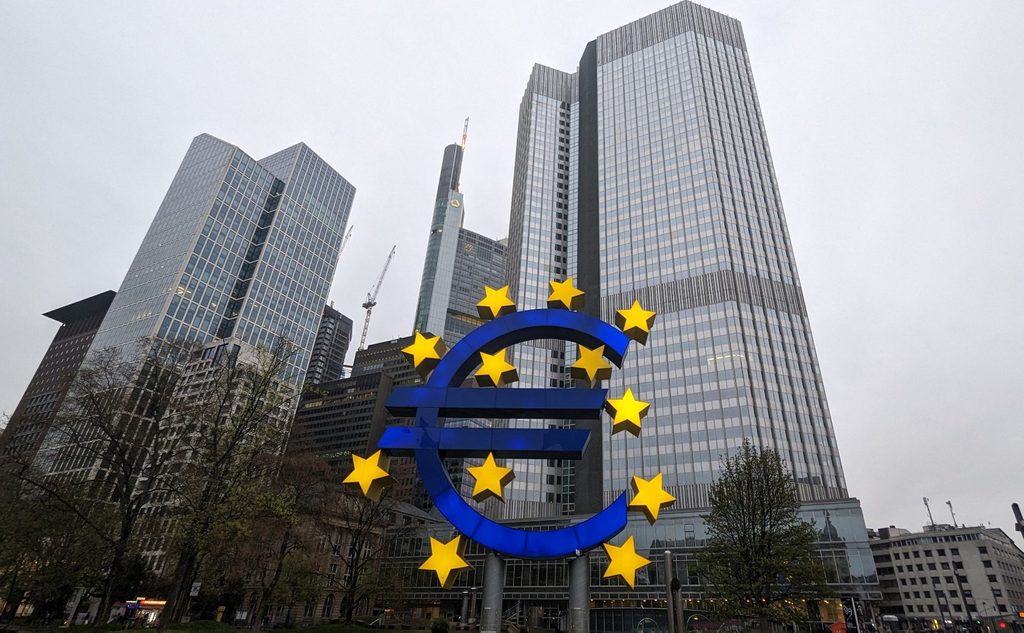Economic activity in the eurozone contracted for the second consecutive quarter in the first three months of this year, as historically high food and energy prices caused the currency union to slip into a technical recession.
In a report published on Thursday, Eurostat, the EU's official statistics office, confirmed that the eurozone's GDP shrank by 0.1% in the first quarter of this year, as it did in the final quarter of last year. A recession is defined as two consecutive quarters of negative growth.
Of the twenty countries which make up the eurozone, seven experienced negative growth over this year's first quarter. Ireland's economy contracted most severely (-4.6%), followed by Lithuania (-2.1%) and the Netherlands (-0.7%).
Germany, the eurozone's largest economy, underwent the bloc's joint fourth-largest contraction (-0.6%) together with Estonia (0.6%). Malta (-0.5%) and Greece (-0.1%) also registered declines in economic growth.
By contrast, Luxembourg posted the largest increase in quarterly growth (2.0%), followed by Portugal (1.6%) and Croatia (1.4%). Belgium's economy grew by 0.5% – up from 0.1% in the final quarter of 2022.
Contraction, but no dissuasion
The eurozone's contraction is unlikely to have a significant impact on the outcome of the European Central Bank's (ECB) meeting next week, where its Governing Council is expected to announce further rate hikes aimed at driving down inflation.
According to the latest Eurostat figures, inflation in the eurozone is currently at 6.1% – more than three times the ECB's official 2% target rate.
"We don't expect the contraction in activity during the first quarter to dissuade the ECB from rising interest rates in next week's meeting, when we [will] see rates rising by 25 basis points," Diego Iscaro, an Associate Director at S&P Global, told The Guardian.
This view is in line with ECB President Christine Lagarde's consistently hawkish statements on monetary policy over the past few months.
"We are heading towards more delicate decisions going forward but we will be courageous and we will take the decisions that are needed to bring inflation back to 2%," Lagarde told Spanish state television channel RTVE last month, in comments that were subsequently reported by Reuters. "And we will do it, no question about it."
Related News
- Belgian banks remain 'among the strongest in Europe', study finds
- Greedflation cost the average Belgian €3,200 in two years, study finds
"We must have sustainably high interest rates, so it's a time when we need to really buckle up and look at this target that we have and deliver on it," she added.
Yet the commitment to push ahead with increasing interest rates during an economic recession has led some economic experts to predict that activity in the eurozone will continue to decline throughout 2023. "We suspect that the economy will contract further over the rest of this year," Andrew Kenningham, Chief Europe Economist at Capital Economics, told CNN.

